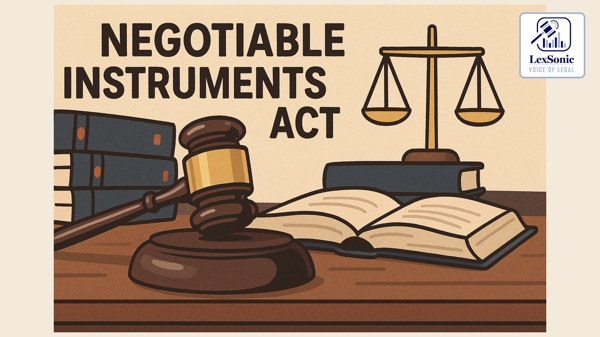Balancing Presumptions and Proof: The Supreme Court's Take on Dishonoured Cheques.
07 August 2024
Criminal Appeals & Suspension of Sentence >> Criminal Law | Negotiable Instruments Act >> Criminal Law
In the realm of legal disputes involving dishonoured cheques, the presumption of legitimacy afforded to negotiable instruments often becomes the point upon which cases are decided. The recent legal battle before the apex court revolves around a cheque that was alleged to be a security for a loan but ended up being the crux of a legal battle under the Negotiable Instruments Act, 1881. This case underscores the intricacies of proving a debt and the role of judicial scrutiny in maintaining the balance between creditors and debtors.
Background and Appeal:
The instant appeal arises from a case of Dattatraya V/S Sharanappa where the Appellant, the original complainant, challenged the High Court's affirmation of a lower court's acquittal of the Respondent. The dispute concerns a cheque issued as security for a loan that was dishonoured due to insufficient funds. Despite the Appellant's assertion that the cheque was issued for a legitimate debt and subsequent demand notices sent, the Trial Court acquitted the Respondent, leading to an appeal before the High Court. The Appellant claimed that the Respondent had borrowed INR 2,00,000 and issued a cheque as security, which was later dishonoured. A legal demand was made following the dishonour, but the Respondent’s reply contested the authenticity of the loan and the cheque’s issuance. The Trial Court, scrutinizing the evidence, found discrepancies in the Appellant’s claims, including the lack of documentation and inconsistencies regarding the cheque’s issuance. This led to the dismissal of the complaint and acquittal of the Respondent.

High Court’s Analysis:
The High Court upheld the Trial Court’s judgment, emphasizing the contradictory statements made by the Appellant regarding the cheque's issuance and the lack of financial evidence to support the loan claim. The Court referred to the presumption under Section 139 of the Negotiable Instruments Act, which can be rebutted by the accused if they provide evidence that the cheque was not issued in discharge of a debt. The Court found that the Respondent had managed to rebut this presumption, and thus, the acquittal was justified.
Supreme Court’s Examination:
The Supreme Court, while reviewing the appeal, focused on the statutory provisions of the NI Act, particularly Sections 118 and 139, which provide a presumption in favor of the holder of a cheque. The Court discussed the rebuttable nature of this presumption and the standard of proof required from the accused. Despite the Appellant’s arguments that the Respondent failed to rebut the presumption effectively, the Court observed that the inconsistencies in the Appellant’s testimony and lack of supporting evidence played a significant role in the acquittal.
Legal Principles and Precedents:
The Court reiterated that the presumption under Section 139, while favouring the holder, does not absolve the holder of the responsibility to establish a prima facie case. The onus to rebut this presumption lies on the accused, who must provide evidence of a preponderance of probabilities. The Court also emphasized that a higher standard of proof beyond a reasonable doubt is not required for rebuttal, as clarified in various judgments.
Conclusion:`
In conclusion, the Supreme Court’s analysis affirms that the principles governing negotiable instruments involve a careful balance between statutory presumptions and the evidentiary burden on the parties involved. The case highlights the judiciary's role in meticulously examining the credibility of claims and the importance of consistent and corroborative evidence in establishing or disproving a debt. The affirmation of the acquittal underscores the judiciary's adherence to legal standards and the nuanced application of statutory provisions in the realm of financial disputes.
Negotiable Instruments Act, 1881
